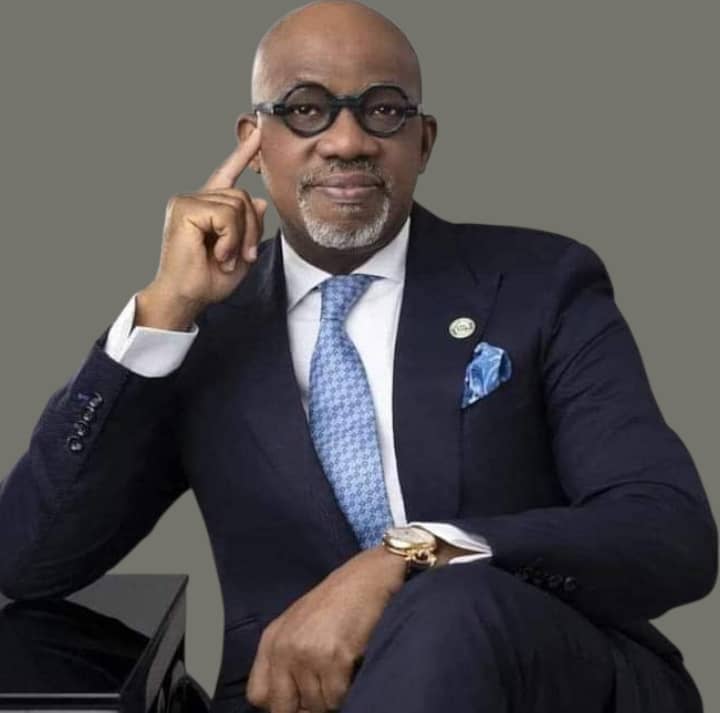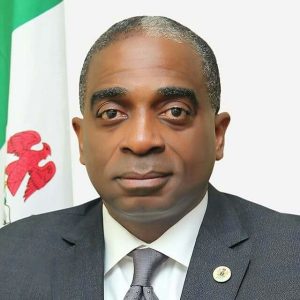
They said he was too quiet. Too gentle for politics. Too refined for the trenches of Ogun’s rugged governance terrain. They mistook calm for weakness, civility for cowardice, and silence for absence. But in truth, a storm was coming—not the kind that destroys, but one that would uproot mediocrity, sweep away despair, and water the dry hopes of a weary people.
When Dapo Abiodun assumed office, he didn’t come with the loud drumbeats of ego or the fireworks of fanfare. He came with a heart full of purpose, sleeves rolled up, and a quiet determination that echoed far louder than noise ever could.
Many mocked him. They wrote him off as a placeholder—someone passing through, not someone planting deeply. But as months passed, it became clear: he was not passing through history; he was shaping it.
He governed, not to impress, but to impact.
In those early, lonely moments when support was thin and cynicism was thick, Abiodun held fast to the timeless truth once uttered by Chief Obafemi Awolowo:
“The future belongs to those who prepare for it today.”
And prepare he did—not with empty speeches, but with broken ground, lifted blocks, restored clinics, empowered artisans, and awakened communities.
The roads in Ilaro and the bridges in Abeokuta became metaphors for what he was doing to the very soul of Ogun State: building connections, restoring access, and linking people to the dignity they were once denied.
Yet the more he worked, the more some tried to tear him down. From within his camp came murmurs. From the opposition came stones. From the sidelines came sneers. But Abiodun pressed on. Not because he didn’t feel the pain, but because, like Tafawa Balewa once said:
“Nigeria will know no peace until her leaders begin to lead by example.”
And so he became an example: An example of restraint in the face of provocation. An example of diligence in an era of distractions. An example of service without spectacle.
Behind every school renovated, there was a child who could now dream again. Behind every health center revitalized, a mother could now sleep without fear. Behind every job created, a youth could now look forward to something more than survival.
His critics had microphones. But he had milestones.
He bled—not from wounds that could be bandaged, but from betrayals that cut deeper than flesh. He carried the weight of expectations and the cruelty of mockery on the same back where he also bore the hope of millions.
And yet, like M.K.O Abiola once said:
“Those who serve God and humanity must expect wounds—but they must never bleed in vain.”
Abiodun bled, but he bled purposefully.
His was not the leadership of thunder. It was the leadership of rain—gentle, steady, and life-giving. He did not shout his achievements; he let them grow in the fields, walk the roads, and speak through the faces of grateful citizens.
In time, even the loudest doubters found themselves silenced—not by intimidation, but by the overwhelming presence of evidence.
Like Ahmadu Bello once taught:
“A man who has the people with him is more powerful than one who only has position.”
And today, the people stand with Dapo Abiodun. Not because he sought to entertain them, but because he served them. Not because he ruled with force, but because he led with heart.
He did not just build infrastructure; He built trust. He did not just fix roads; He mended broken spirits. He did not just hold office; He held Ogun State together.
And so, the man they once mocked… became the miracle they now celebrate. The one they underestimated… became the storm they never saw coming. A storm not of rage, but of rebirth.
Dapo Abiodun’s quiet storm changed Ogun. And history will never forget it.
Tayo Mabeweje
Media Consultant to the Executive Governor of Ogun State








